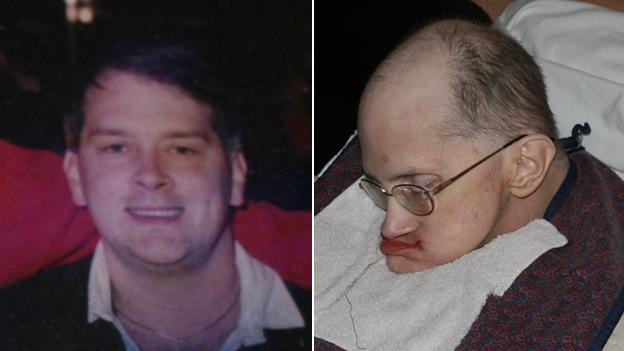Alzheimer's: Edenbridge woman calls for more support for young sufferers
- Published
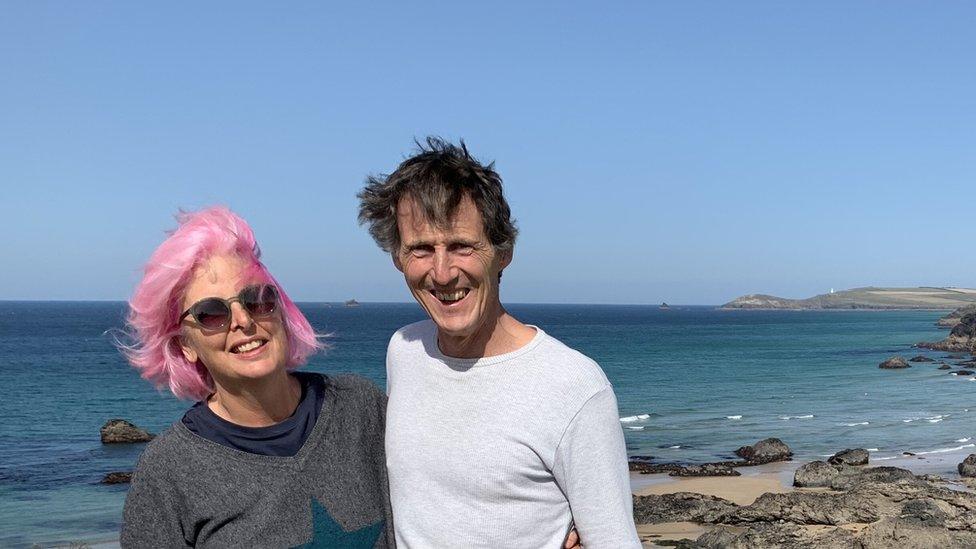
Richard Fried was 55 when he was diagnosed with Alzheimer's
A woman whose husband was diagnosed with early onset Alzheimer's said more should be done for younger people with the condition.
Mary Fried said her husband Richard, who was diagnosed at the age of 55, needs to be "active" and "stimulated".
Meanwhile, the Alzheimer's Society has called for the government to make social care a more attractive profession.
The government said funding was being made available and plans reviewed.
Mr Fried, who lives in Edenbridge, Kent, was working as a landscape architect when he was diagnosed.
Mrs Fried told BBC Radio Kent: "It still makes me cry.
"It was New Year's Eve 2015. The children were home, and it was absolutely life-shattering."
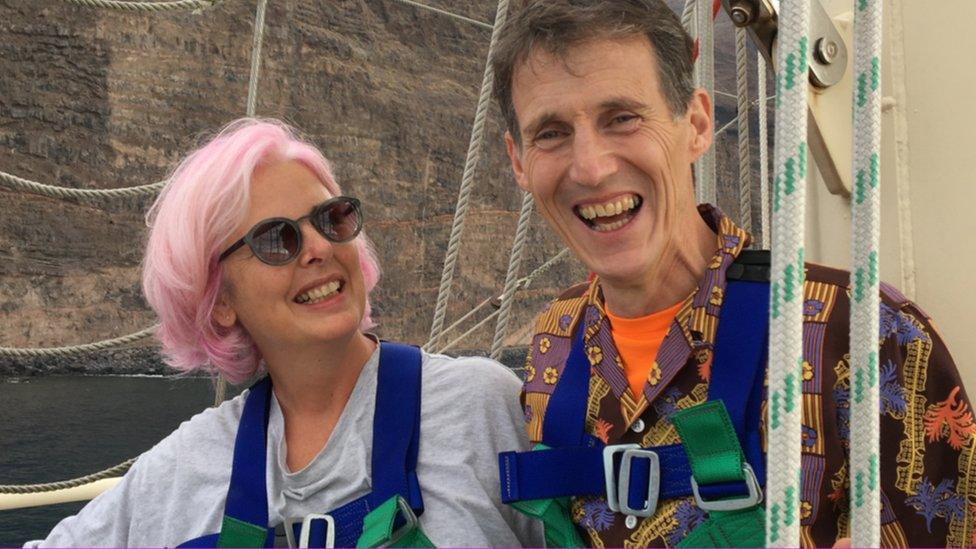
Mary Fried has given up work to care for her husband
She had to give up her work in the fashion industry to care for her husband.
"We went from two incomes to nothing" she said.
"Richard's now at the moderate to severe stage so he gets the full Personal Independence Payment, which is just over £150 a week. That pays for seven hours of care."
The Alzheimer's Society recently claimed there are 165,000 social care vacancies across the UK.
The organisation wants the government to improve pay, career progression and training in the care sector.
Mrs Fried would also like to see more resources to support people who develop the condition in early life.
"There's loads of dementia cafes and singing groups, but it's all based on people way older than Richard," she said.
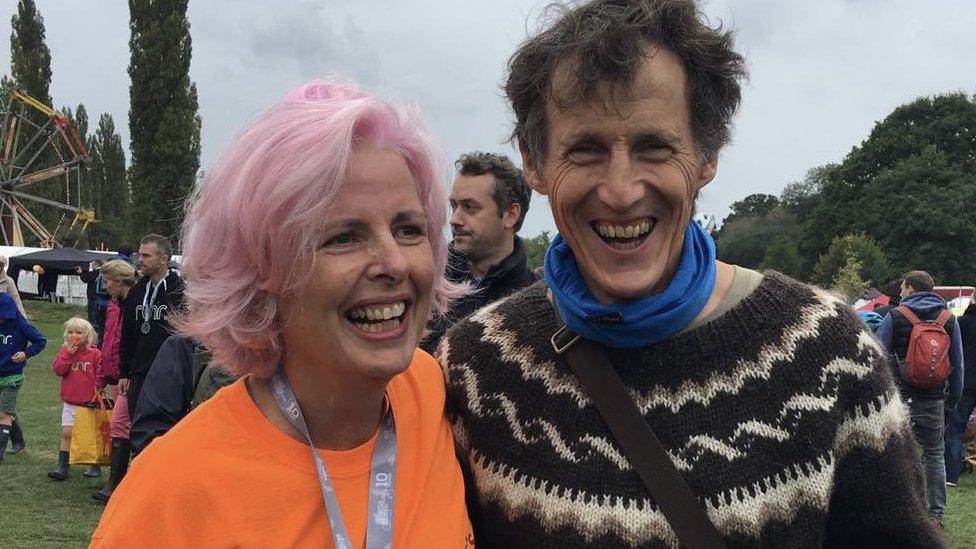
Mary Fried says not enough resources are aimed at people who develop Alzheimer's earlier in life
Mrs Fried said her husband was "25 years younger" than the other people at his day care centre.
"He needs to be active. He needs to go out every day and be stimulated," she added.
The Department for Health and Social Care said it was making "the biggest funding increase in history" for adult social care - with up to £2.8bn of additional funding available in 2023-24 and £4.7bn in 2024-25.
A statement said: "We recognise the current challenges in social care and this historic funding boost will help local authorities to start to address waiting lists, low fee rates, and workforce pressures in the adult social care sector.
"We want a society where every person with dementia, their families and carers receive high quality, compassionate care."

Follow BBC South East on Facebook, external, on Twitter, external, and on Instagram, external. Send your story ideas to southeasttoday@bbc.co.uk, external.
Related topics
- Published25 July 2022
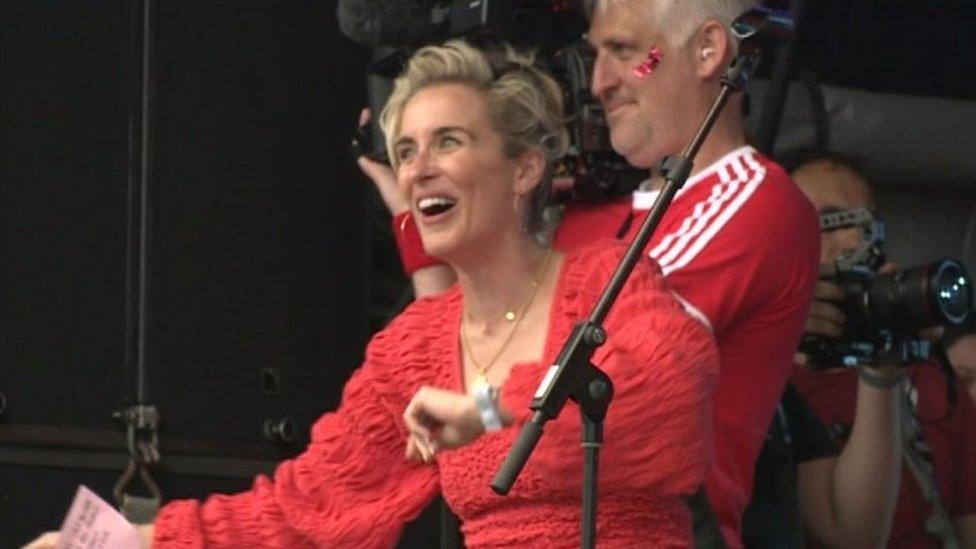
- Published28 September 2022

- Published21 September 2021
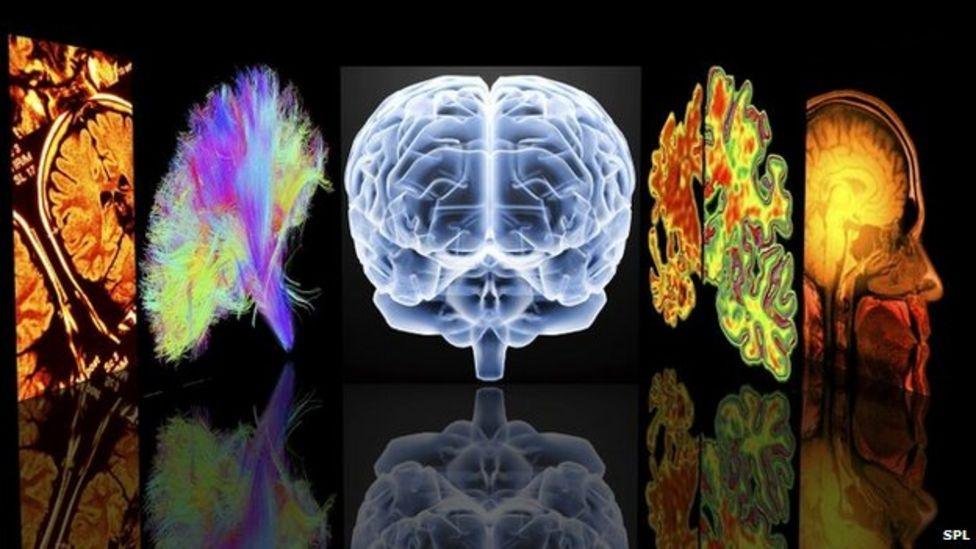
- Published7 December 2016

- Published11 May 2018
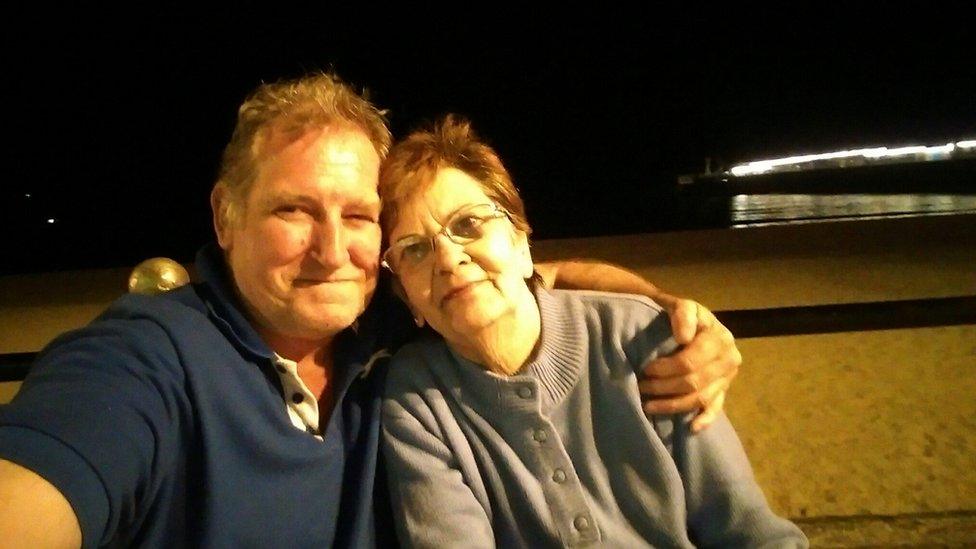
- Published30 May 2012
